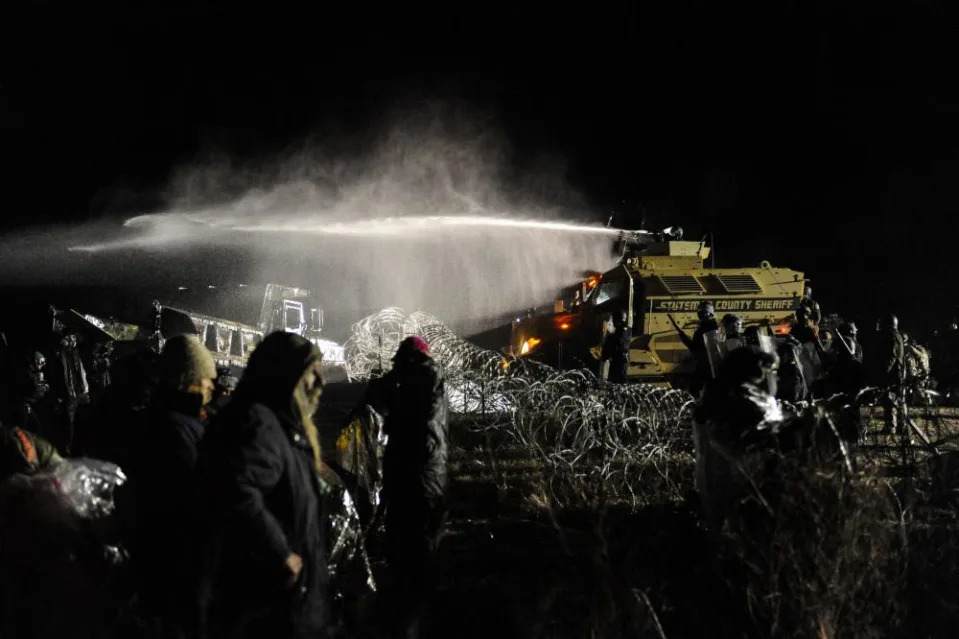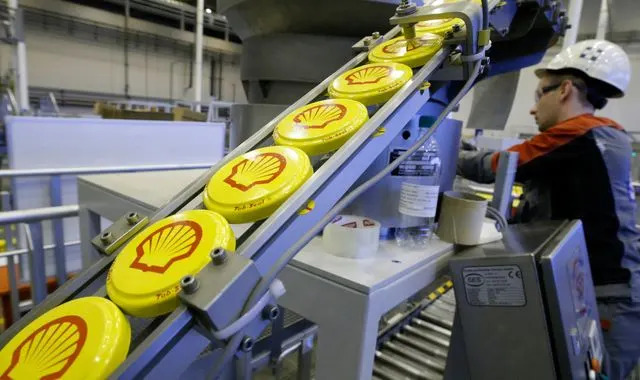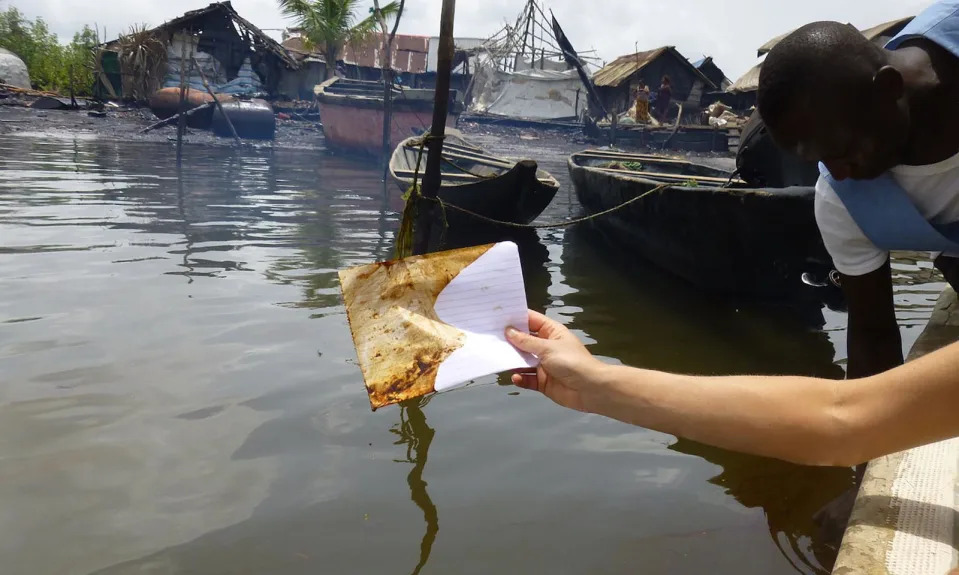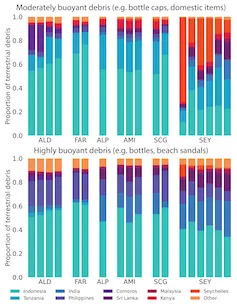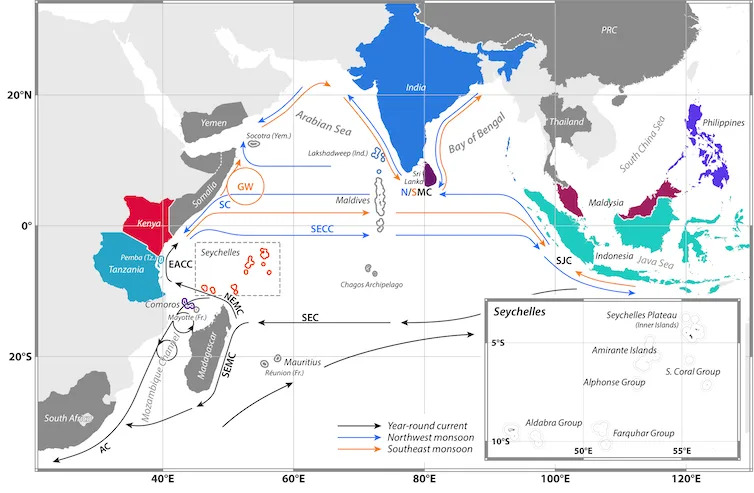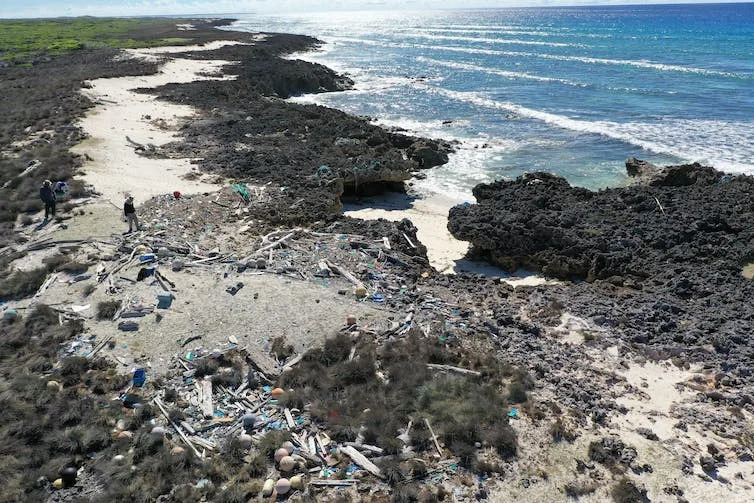CRIMINAL CAPITALI$M
UKHow energy suppliers exploited rules to disconnect customers
Sam Meadows
The Telegraph
Thu, 2 February 2023
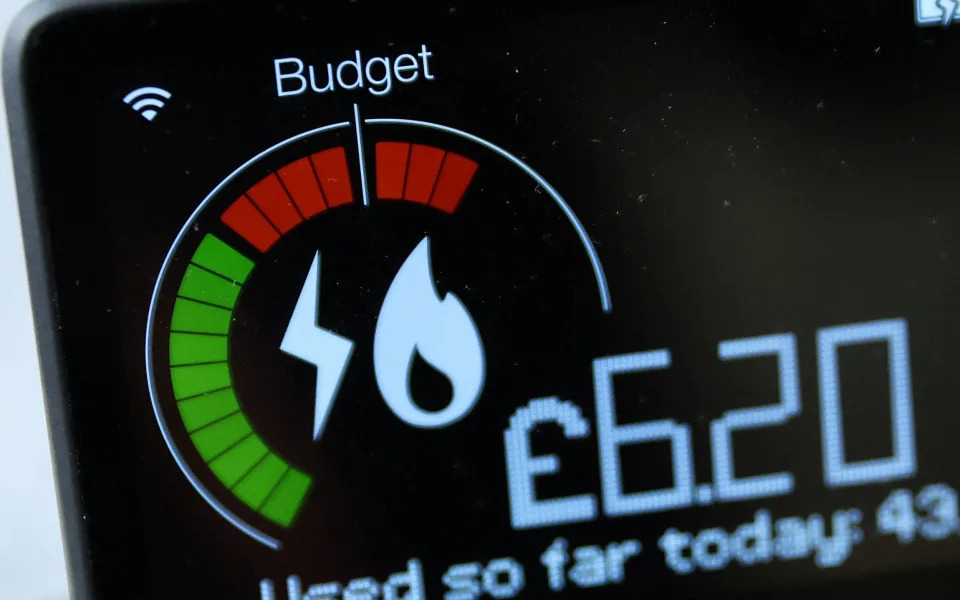
A home smart meter showing energy use is seen in the kitchen of a home
Thu, 2 February 2023

A home smart meter showing energy use is seen in the kitchen of a home
- Phil Noble / REUTERS
Energy providers have entered hundreds of thousands of homes to switch customers to controversial prepayment meters, and millions more could be switched without their suppliers even visiting the property.
Energy firms secured more than 300,000 warrants to enter customers’ homes and change their meters to prepayment in the four years to 2021.
A Freedom of Information request submitted by The Telegraph to the Ministry of Justice revealed that between 2017 and 2021, the largest suppliers secured 311,037 warrants.
Millions more risk having their smart meters flipped to prepayment without their supplier having to enter their homes. Earlier this year, Citizens Advice said that 3.2 million people were left with cold and dark homes in 2022 after running out of credit on their prepayment meter.
Data from Ofgem, the energy regulator, revealed that 260,118 smart meters were switched to prepayment mode remotely in 2021.
Prepayment meters are typically used by suppliers to recover debt, but the tariffs tend to be more expensive than traditional meters and households are at risk of being disconnected from their energy supply completely if they cannot afford the top-ups.
It comes after British Gas, Britain’s biggest energy supplier, was accused of carrying out remote switches despite a previous commitment to stop the practice.
An investigation by the Times revealed that bailiffs acting on behalf of the company had in some instances forced access to the homes of vulnerable customers to change meters. The company’s chief executive Chris O’Shea admitted forced entry had been used and said its contractor had “let us down”.
When can you be switched to a prepayment meter?
Energy firms often use prepayment meters to help recoup debts built up by customers who have fallen behind on repayments. With soaring energy costs there have been fears that more people may find themselves unable to afford their bills.
Suppliers are supposed to exhaust all options to help you meet your costs, including offering a payment plan you can afford, before taking the step of forcibly changing your meter.
They must also give notice before coming to your home – seven days for gas and seven working days for electricity – and 28 days to repay your debt before telling you of the proposed prepayment plan.
You can refuse to be moved to a prepayment meter. Citizens Advice says you can block the change if an illness or disability means you would be harmed if your gas or electricity was cut off.
This is also the case if you cannot get to your meter or top it up – perhaps because you cannot afford it or would be unable to get to a shop.
What support is there for vulnerable customers?
If you classify as vulnerable then you may be eligible for more support. Ofgem says that a vulnerable customer is someone who may be “significantly less able” than others to represent their interests, or who would be more likely than a typical customer to suffer detriment.
Some examples of customers who may be vulnerable would be those of state pension age, disabled people, people with mental health issues, or those who do not speak good English.
Vulnerable customers can apply to be placed on the Priority Services Register – or ask their supplier to register them – which provides priority support in an emergency, advanced notice of power cuts and greater help with meter readings.
Is my smart meter at risk?
While companies must apply for a court warrant to forcibly change a traditional meter to prepayment, smart meters can be switched remotely without the need to enter a home.
Ofgem data showed that between 2017 and 2021, 597,162 smart meters were switched in this way. Households have separate smart meters for gas and electric, so the number of households affected would have been lower.
A spokesman for Smart Energy GB, the lobbying body for the smart meter rollout, said that there are strict rules that mean such switches should only be carried out as a “last resort and only where it is safe to do so”.
He added: “For the hundreds of thousands of people who have chosen a smart meter in prepay mode, there are significant advantages compared with an analogue meter. These include the ability to see your energy use in pounds and pence and to top up online instead of at the shops.”
What support is there if I can’t pay my bills?
Those struggling to afford their gas and electricity bills should, in the first instance, contact their supplier. Most firms have schemes in place to help customers and this could include emergency credit.
You may be able to agree to an affordable payment plan or pay off your debt through any benefits you may be entitled to.
The government debt scheme Breathing Space may also be able to provide you with 60 days to help you get back onto your feet.
What have the other companies been doing?
Octopus Energy said it has installed just 31 prepayment meters via warrant and has used them as a way to control debt less than 200 times.
A spokesman said it suspended all Bulb warrants shortly after taking over and would engage with a customer for at least six months before taking action.
Ovo Energy said it suspended all warrant activity in November last year and it remains suspended. It too says the process takes at least six months and that debt recovery on prepayment meters is suspended until at least next month.
Shell Energy said it has “strict processes” around prepayment installations and suspends them every year in December and January. It uses them only as a “last resort” if a customer has not engaged for at least six months.
EDF Energy said it offers tailored support and visits the customer at home before considering warrants. It said that in 2022 it took action in just half of the 13,766 cases where a warrant was applied for. Forced installations are currently suspended pending a review.
Eon and Scottish Power were approached for comment.
Energy providers have entered hundreds of thousands of homes to switch customers to controversial prepayment meters, and millions more could be switched without their suppliers even visiting the property.
Energy firms secured more than 300,000 warrants to enter customers’ homes and change their meters to prepayment in the four years to 2021.
A Freedom of Information request submitted by The Telegraph to the Ministry of Justice revealed that between 2017 and 2021, the largest suppliers secured 311,037 warrants.
Millions more risk having their smart meters flipped to prepayment without their supplier having to enter their homes. Earlier this year, Citizens Advice said that 3.2 million people were left with cold and dark homes in 2022 after running out of credit on their prepayment meter.
Data from Ofgem, the energy regulator, revealed that 260,118 smart meters were switched to prepayment mode remotely in 2021.
Prepayment meters are typically used by suppliers to recover debt, but the tariffs tend to be more expensive than traditional meters and households are at risk of being disconnected from their energy supply completely if they cannot afford the top-ups.
It comes after British Gas, Britain’s biggest energy supplier, was accused of carrying out remote switches despite a previous commitment to stop the practice.
An investigation by the Times revealed that bailiffs acting on behalf of the company had in some instances forced access to the homes of vulnerable customers to change meters. The company’s chief executive Chris O’Shea admitted forced entry had been used and said its contractor had “let us down”.
When can you be switched to a prepayment meter?
Energy firms often use prepayment meters to help recoup debts built up by customers who have fallen behind on repayments. With soaring energy costs there have been fears that more people may find themselves unable to afford their bills.
Suppliers are supposed to exhaust all options to help you meet your costs, including offering a payment plan you can afford, before taking the step of forcibly changing your meter.
They must also give notice before coming to your home – seven days for gas and seven working days for electricity – and 28 days to repay your debt before telling you of the proposed prepayment plan.
You can refuse to be moved to a prepayment meter. Citizens Advice says you can block the change if an illness or disability means you would be harmed if your gas or electricity was cut off.
This is also the case if you cannot get to your meter or top it up – perhaps because you cannot afford it or would be unable to get to a shop.
What support is there for vulnerable customers?
If you classify as vulnerable then you may be eligible for more support. Ofgem says that a vulnerable customer is someone who may be “significantly less able” than others to represent their interests, or who would be more likely than a typical customer to suffer detriment.
Some examples of customers who may be vulnerable would be those of state pension age, disabled people, people with mental health issues, or those who do not speak good English.
Vulnerable customers can apply to be placed on the Priority Services Register – or ask their supplier to register them – which provides priority support in an emergency, advanced notice of power cuts and greater help with meter readings.
Is my smart meter at risk?
While companies must apply for a court warrant to forcibly change a traditional meter to prepayment, smart meters can be switched remotely without the need to enter a home.
Ofgem data showed that between 2017 and 2021, 597,162 smart meters were switched in this way. Households have separate smart meters for gas and electric, so the number of households affected would have been lower.
A spokesman for Smart Energy GB, the lobbying body for the smart meter rollout, said that there are strict rules that mean such switches should only be carried out as a “last resort and only where it is safe to do so”.
He added: “For the hundreds of thousands of people who have chosen a smart meter in prepay mode, there are significant advantages compared with an analogue meter. These include the ability to see your energy use in pounds and pence and to top up online instead of at the shops.”
What support is there if I can’t pay my bills?
Those struggling to afford their gas and electricity bills should, in the first instance, contact their supplier. Most firms have schemes in place to help customers and this could include emergency credit.
You may be able to agree to an affordable payment plan or pay off your debt through any benefits you may be entitled to.
The government debt scheme Breathing Space may also be able to provide you with 60 days to help you get back onto your feet.
What have the other companies been doing?
Octopus Energy said it has installed just 31 prepayment meters via warrant and has used them as a way to control debt less than 200 times.
A spokesman said it suspended all Bulb warrants shortly after taking over and would engage with a customer for at least six months before taking action.
Ovo Energy said it suspended all warrant activity in November last year and it remains suspended. It too says the process takes at least six months and that debt recovery on prepayment meters is suspended until at least next month.
Shell Energy said it has “strict processes” around prepayment installations and suspends them every year in December and January. It uses them only as a “last resort” if a customer has not engaged for at least six months.
EDF Energy said it offers tailored support and visits the customer at home before considering warrants. It said that in 2022 it took action in just half of the 13,766 cases where a warrant was applied for. Forced installations are currently suspended pending a review.
Eon and Scottish Power were approached for comment.


